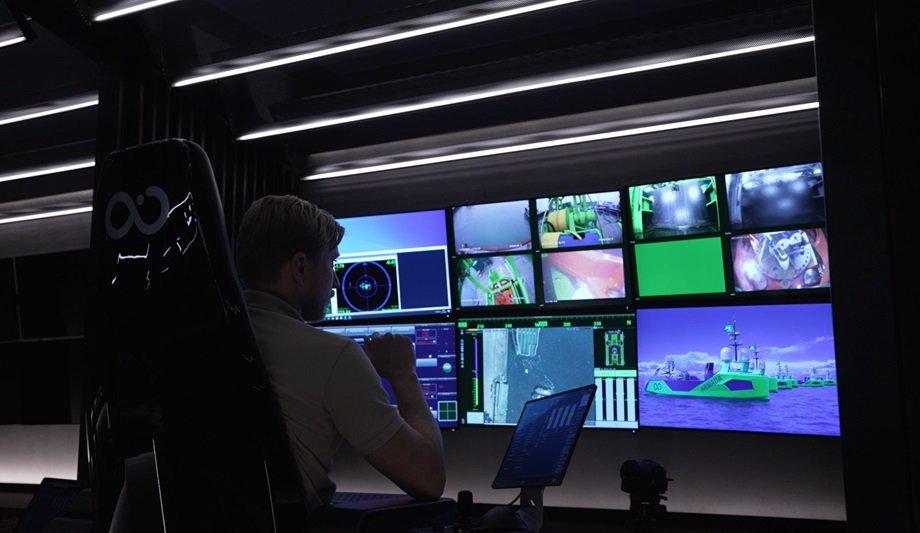Ocean Infinity has achieved a groundbreaking milestone in maritime innovation, receiving a Statement of Compliance (SOC) from DNV for its revolutionary remotely supported vessel operations.
The approval from DNV, the classification society, establishes Ocean Infinity as the industry's first organisation to reach the required standard of technology and operations for large vessels and permits the beginning of onshoring marine-related tasks and activities.
Statement of Compliance
This high-profile presentation highlights the industry-wide significance of Ocean Infinity's pioneering work
The significance of this achievement was underscored at SMM in Hamburg, the world's largest maritime trade fair, where DNV formally presented the Statement of Compliance to Ocean Infinity.
This high-profile presentation highlights the industry-wide significance of Ocean Infinity's pioneering work.
Innovation and technology
Oliver Plunkett, CEO of Ocean Infinity, stated, "Since we started the business, Ocean Infinity has been about innovation, technology, and pushing the boundaries in the maritime industry. This is a significant achievement for the team. My congratulations go to them all, as well as those who have worked with them and contributed at DNV and Vard, our shipbuilder."
Technology-driven progress
Oliver Plunkett continues, "As we deliver our services to our customers, we are continually balancing the need for technology-driven progress with safely bringing them solutions."
He adds, "Our approach is to pioneer with speed but not haste, becoming the first organisation to receive this Statement of Compliance is a testament to that. I am looking forward to watching as we begin to put our ideas of onshoring marine activities and tasks into practice."
Addressing costs and sustainable challenges
Ocean Infinity's achievement addresses pressing industry challenges, such as rising operational costs
Ocean Infinity's achievement addresses pressing industry challenges, such as rising operational costs and the need for sustainable operations and an inclusive workforce.
The successful implementation of remote vessel technology bringing maritime work into the office, not only demonstrates its feasibility and safety, but also sets the stage for widespread future adoption, transforming global shipping practices.
Fully autonomous and remote operation
"The journey towards fully autonomous and remote operation of vessels is gathering pace, and DNV is very proud to be the class partner Ocean Infinity has entrusted to accompany them on their journey," says Jarle Coll Blomhoff, Head of Digital Ship Systems at DNV.
Jarle Coll Blomhoff adds, "By proceeding step-by-step, beginning by moving some functions to a remote centre, and ensuring that these innovations are built on a foundation of expertise and trusted assurance, Ocean Infinity is helping the industry to move forward with confidence. That is why we are so pleased to have awarded them the first fleet-wide Statement of Compliance with the DNV-CG-0264 Autonomous and remotely operated ships guideline for the first phase of Ocean Infinity’s onshoring plans."
Remote marine operations
Jarle Coll Blomhoff continues, "This is an achievement that has also been acknowledged by the Maritime and Port Authority of Singapore (MPA). We are looking forward to continuing the journey with Ocean Infinity and MPA towards full autonomous and remote vessel operation."
The next two of Ocean Infinity’s vessels to be upgraded to meet the new standard are in their final stages of testing, while at the same time, the team is already working on the next phase of its remote marine operations programme.
Key achievements
- DNV Statement of Compliance for the remotely supported operational concept for the Armada 78 fleet of offshore survey vessels.
- DNV Statement of Compliance for Armada 78 03, the first vessel in the Armada fleet to complete the upgrade and verification process.
- Interim Acknowledgement from the Maritime and Port Authority (MPA) to commence operations worldwide with Navigators and Engineers working from an ashore ROC to lend additional support to the on-board crews and reduce their workload.
